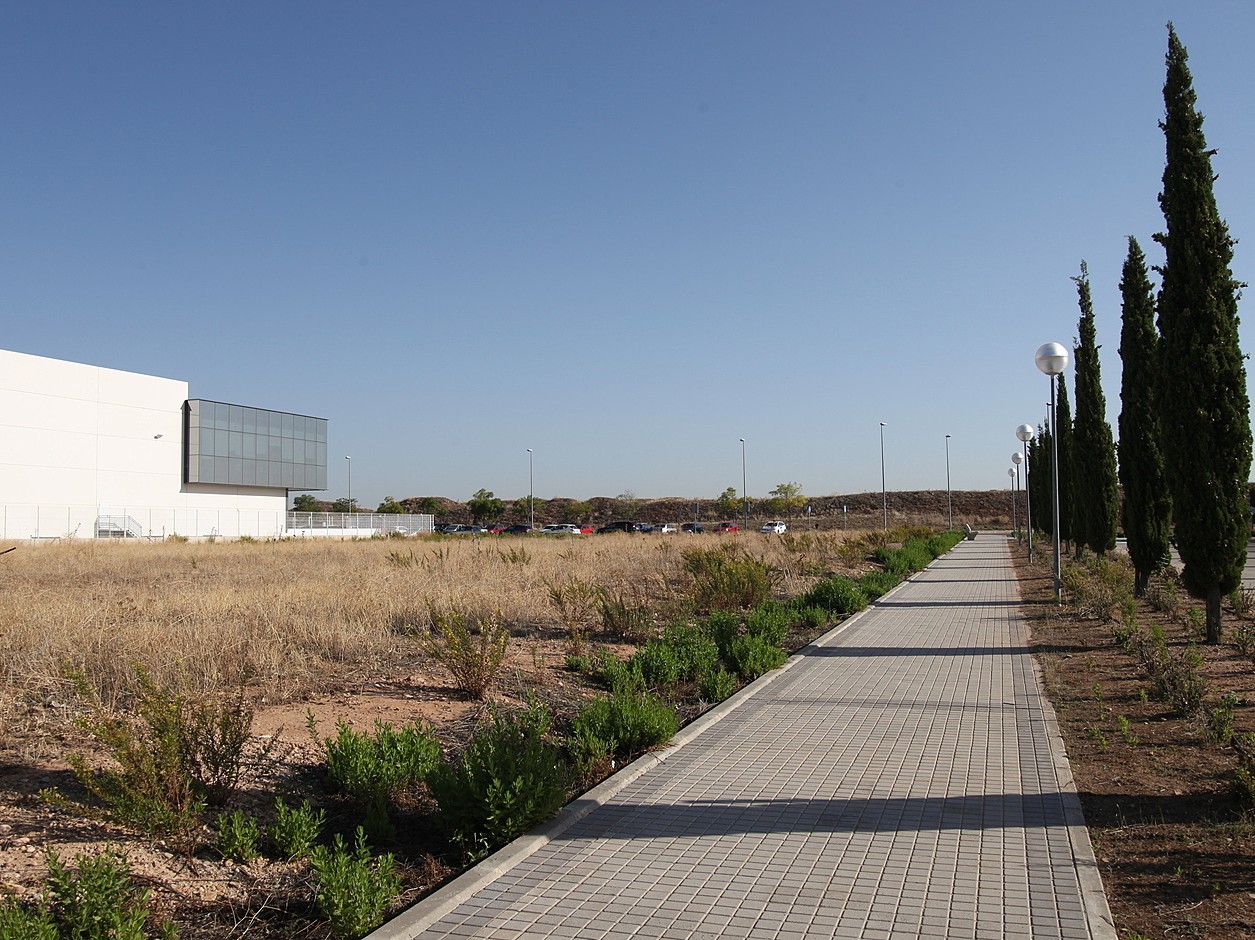Europe's Man on the Moon. How scientists and engineers are already taking up the challenges from the new European Green Deal.
The beginning of a story often starts in an unpretentious place. A place like an undeveloped piece of land in the industrial park of Alcalá de Henares, 35 kilometres East of Madrid. Within the next 18 months, this area will be turned into a solar park and equipped with a modern biomass boiler. The aim is to use the solar panels and the boiler to heat (or cool) a nearby building without using any fossil fuel. "We want to demonstrate that it's possible to have a 100% renewable system," says Maria Cambronero, "and not only here in Alcalá, but also in other cities in Sweden, Poland and Romania." Maria Cambronero is the coordinator of the WEDISTRICT project, an initiative funded by the European Commission to integrate different green technologies in district heating systems across Europe. District heating is a centralised system that provides heating and cooling to buildings via buried piping. It has been used for decades, but it is mostly run on fossil fuels like coal, oil and gas. In fact, currently 70% of the energy that Europe uses to heat or cool buildings – meaning your central heating or air conditioning – comes from fossil fuels. Maria Cambronero was invited to present her project during the UN Climate Conference (COP25) just around the corner of the Alcalá site. For her, it's a home game in a challenging field, where research initiatives are not competing with each other, but aim to create open data and freely available results for everyone, so that other scientists can benefit from the results. At each of the four test sites, different technologies are being trialled to play on the strengths of that particular area. While the Spanish demo site in Alcalá will focus on solar energy and biomass boilers, the Romanian demo site will be powered by a geothermal pump. The Polish demo site will substitute a current coal-based central heating with biomass boilers, while in Sweden the challenge will be to integrate waste heat from data storage centres into the district heating system. Only a swift implementation of the project will enable others to benefit from these technologies and apply them to many more cities and heating and cooling systems across the continent. In this respect, the WEDISTRICT project is the kind of activity Ursula von der Leyen, the new President of the EU Commission, referred to when she presented her New Green Deal earlier this week. "This is Europe's Man on the Moon moment," Ursula von der Leyen claims in her press statement, while she also stresses the economic opportunities that the fight for climate change can provide: "the European Green Deal is a strategy for growth that gives more back than it takes away." Alan Haigh, head of the Horizon 2020 Department of the Innovation and Networks Executive Agency (INEA) could not agree more. INEA is supporting the WEDISTRICT project: "Our research and innovation projects aim to develop new technologies, products, processes and services that could mitigate climate change and boost Europe's energy security. This should also help to create new jobs and make the European economy more competitive." The current EU approach and in particular the new European Green Deal is welcomed by most professionals working in research and innovation to battle climate change. It's seen as an important first signal of priorities of the new Commission, but will it be enough? Maria Cambronero is unsure: "We have the 2050 deadline, which is in 30 years, and maybe we should be more ambitious, because maybe in 30 years it's too late." This is also reflected by the general theme of COP25 - the time to act is now. "I hope that we don't forget this in two weeks when the COP has ended," says Maria, speaking about the buzz and the publicity that has surrounded the world's biggest climate change conference. WEDISTRICT has received funding from the European Union's Horizon 2020 research and innovation programme under Grant Agreement No 857801.



